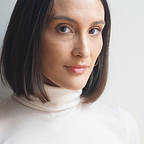A Cambridge Psychiatry Professor’s Advice for a Happier Year
I spent the second half of 2021 running a weekly series for The Guardian about post-vaccine pandemic life. It’s called “The Return,” which was what many of us naïvely envisioned that the year would provide, way back in the spring. As in, a return to ‘normal.’ It feels like a lifetime ago.
2021 didn’t give us normal, exactly. But with the arrival of highly effective vaccines against Covid-19, we had renewed access to certain pleasures, routines, and rituals we’d been deprived of. Yes, there were masks involved, and for many of us, vaccine passports. But in exchange, there was the world. More of it, at least.
In my six months running The Return, I either spoke with, or edited interviews of, dozens of scientists, medical professionals, public health experts, and others with keen insights as to how the pandemic is changing us, or might change us yet. One of those experts was the University of Cambridge psychiatry professor Barbara J. Sahakian, who has been studying the effects of the pandemic on cognition and mental health.
I interviewed Dr. Sahakian for the very first article of the series, and again for the last. When I asked her, most recently, if she’d learned any unexpected lessons since March 2020 that she planned to carry with her into the new year, she said that she hadn’t. Instead, she told me, she had started making time for the things she already knew made her happy: theater, ballet, and dining out with family and friends. An expert’s pandemic note to self, for the sake of her own mental health.
It’s simple, yet so deceptively challenging to put into practice: Make time. If you have the time to read this silly post, you can find the time for joy. Doctor’s orders.
